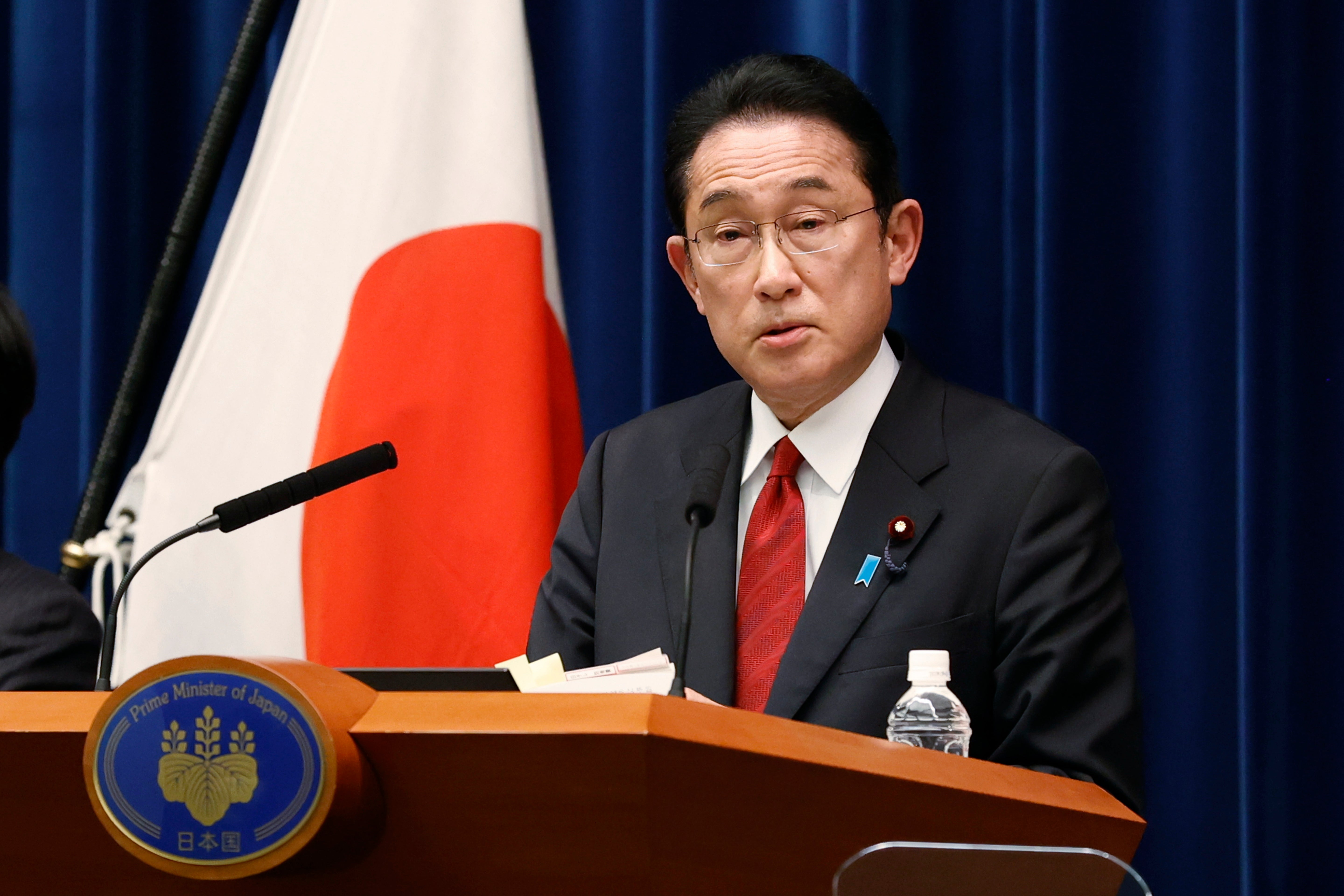US lawmakers affirm Japan alliance eyeing China, North Korea
Japanese Prime Minister Fumio Kishida and visiting U.S. lawmakers have reaffirmed their commitment to working together under a longstanding bilateral alliance, amid heightened global tensions spanning the war in Ukraine to threats from neighboring China and North Korea

Your support helps us to tell the story
From reproductive rights to climate change to Big Tech, The Independent is on the ground when the story is developing. Whether it's investigating the financials of Elon Musk's pro-Trump PAC or producing our latest documentary, 'The A Word', which shines a light on the American women fighting for reproductive rights, we know how important it is to parse out the facts from the messaging.
At such a critical moment in US history, we need reporters on the ground. Your donation allows us to keep sending journalists to speak to both sides of the story.
The Independent is trusted by Americans across the entire political spectrum. And unlike many other quality news outlets, we choose not to lock Americans out of our reporting and analysis with paywalls. We believe quality journalism should be available to everyone, paid for by those who can afford it.
Your support makes all the difference.Japanese Prime Minister Fumio Kishida and visiting U.S. lawmakers reaffirmed their commitment to working together under a longstanding bilateral alliance on Saturday, amid heightened global tensions spanning the war in Ukraine to threats from neighboring China and North Korea.
In a meeting over breakfast, the delegation, led by Sen. Lindsey Graham of South Carolina, agreed with Kishida on the importance of maintaining a “free and open Indo-Pacific region,” according to the Foreign Ministry.
The six lawmakers’ visit follows their earlier stop in Taiwan, where they made a pointed and public declaration of their support for the self-governing island democracy, while issuing a warning to China. They met with Taiwanese President Tsai Ing-wen on Friday.
China carried out military drills near Taiwan in protest of the delegation’s visit. Spokesperson Zhao Lijian said China was prepared “to take strong measures to resolutely safeguard its sovereignty and territorial integrity.”
Japan has long been nervous about China’s stance on Taiwan, but such views, especially among conservative politicians seeking a more assertive military, have heightened since the war in Ukraine. The question is sensitive because Japan’s pacifist constitution adopted after its defeat in World War II bans the use of force in international disputes. Japan keeps its overseas military operations to peacekeeping and humanitarian relief.
Officially, Japan does not recognize Taiwan but they maintain friendly relations. The question of whether the U.S. would intervene in the case of a military invasion of Taiwan by China remains open. Analysts say Japan’s role in such a hypothetical situation is even more unclear because Japan houses a huge U.S. military presence under the alliance.
Kishida told the representatives from Congress that the bilateral alliance superseded political party divisions, and sought their understanding on Japan's role in working toward peace and prosperity in the region. Tokyo also asked for U.S. support for ongoing efforts by Japan to bring home Japanese who were abducted by North Korea decades ago, the ministry said. North Korea returned some of the abducted people in 2004.
China is against any official exchanges between Taiwan’s government and other foreign governments because it claims Taiwan is part of its national territory and not an independent country. China and Taiwan split after a civil war in 1949.
The U.S. delegation also includes Sen. Robert Menendez of New Jersey, Sen. Richard Burr of North Carolina, Sen. Rob Portman of Ohio, Sen. Ben Sasse of Nebraska and Rep. Ronny Jackson of Texas.
___
Associated Press Writer Huizhong Wu in Taipei, Taiwan contributed to this report.
Wu is on Twitter https://twitter.com/huizhong_wu
Yuri Kageyama is on Twitter https://twitter.com/yurikageyama